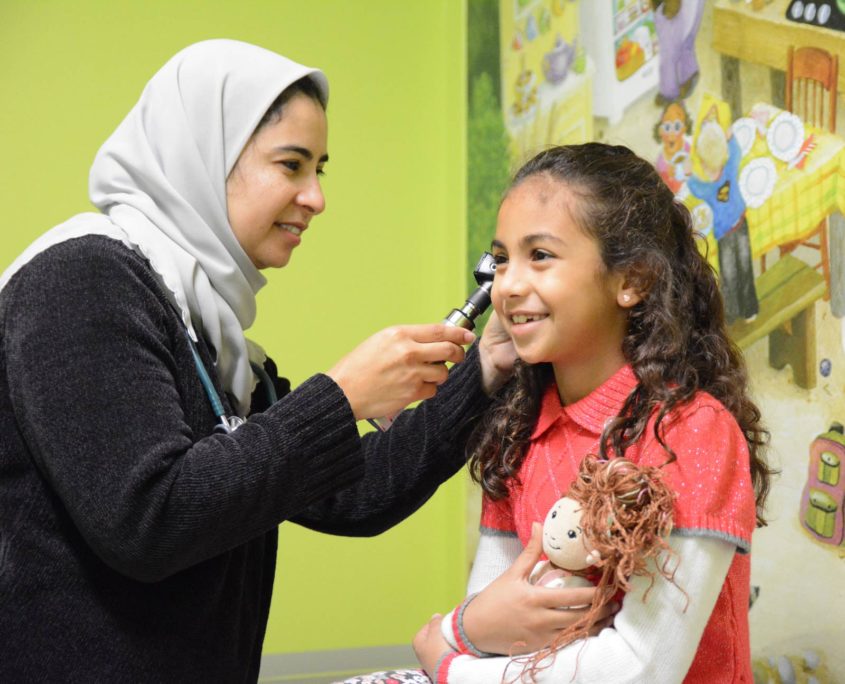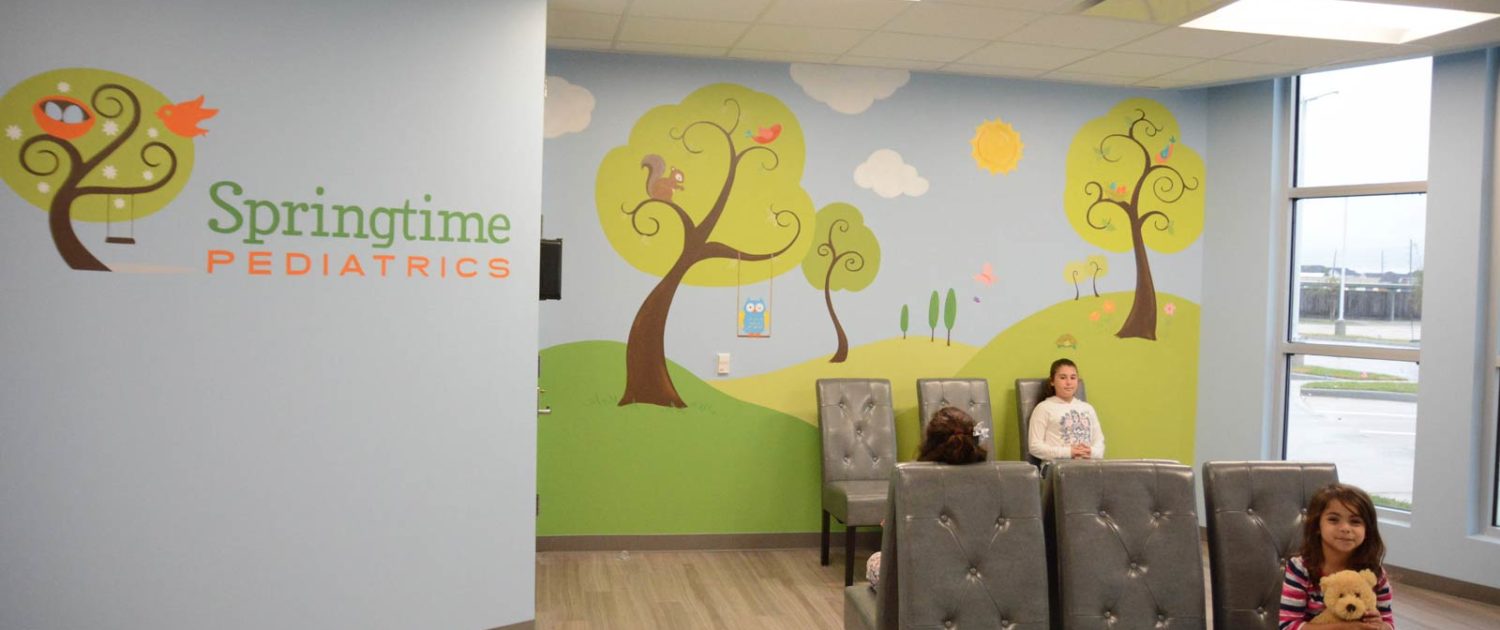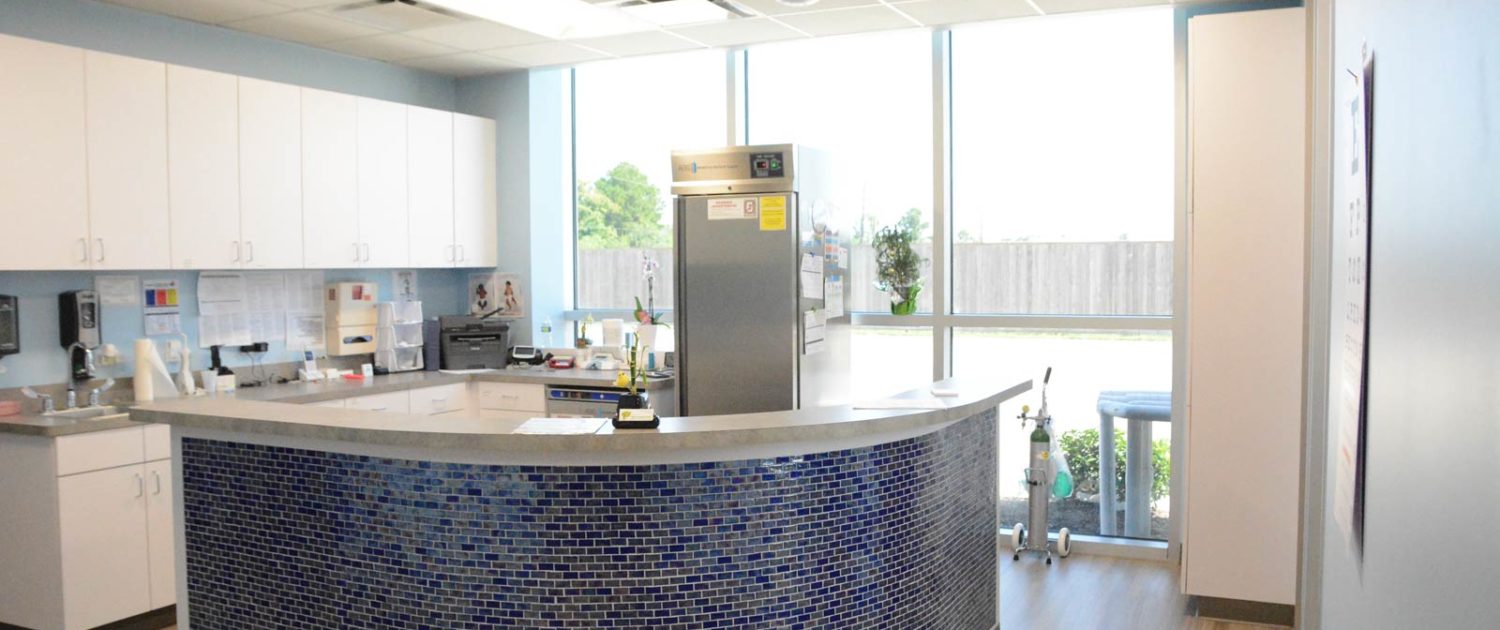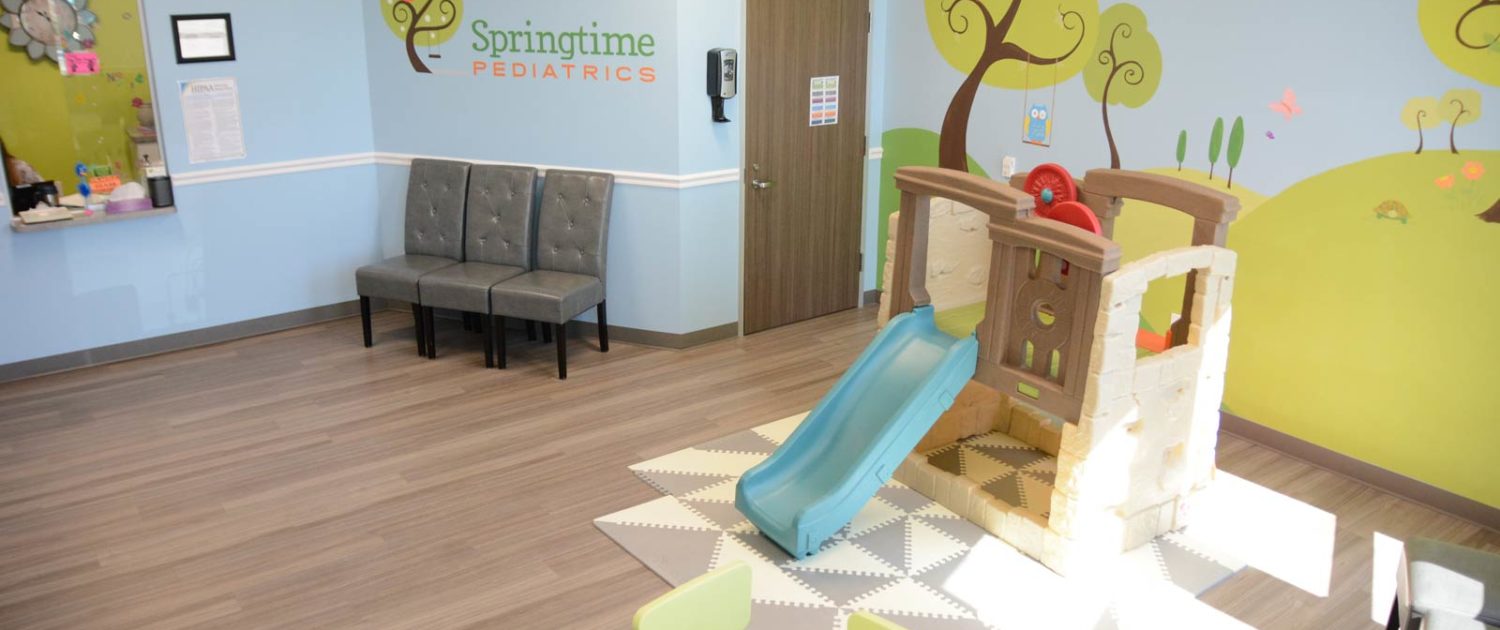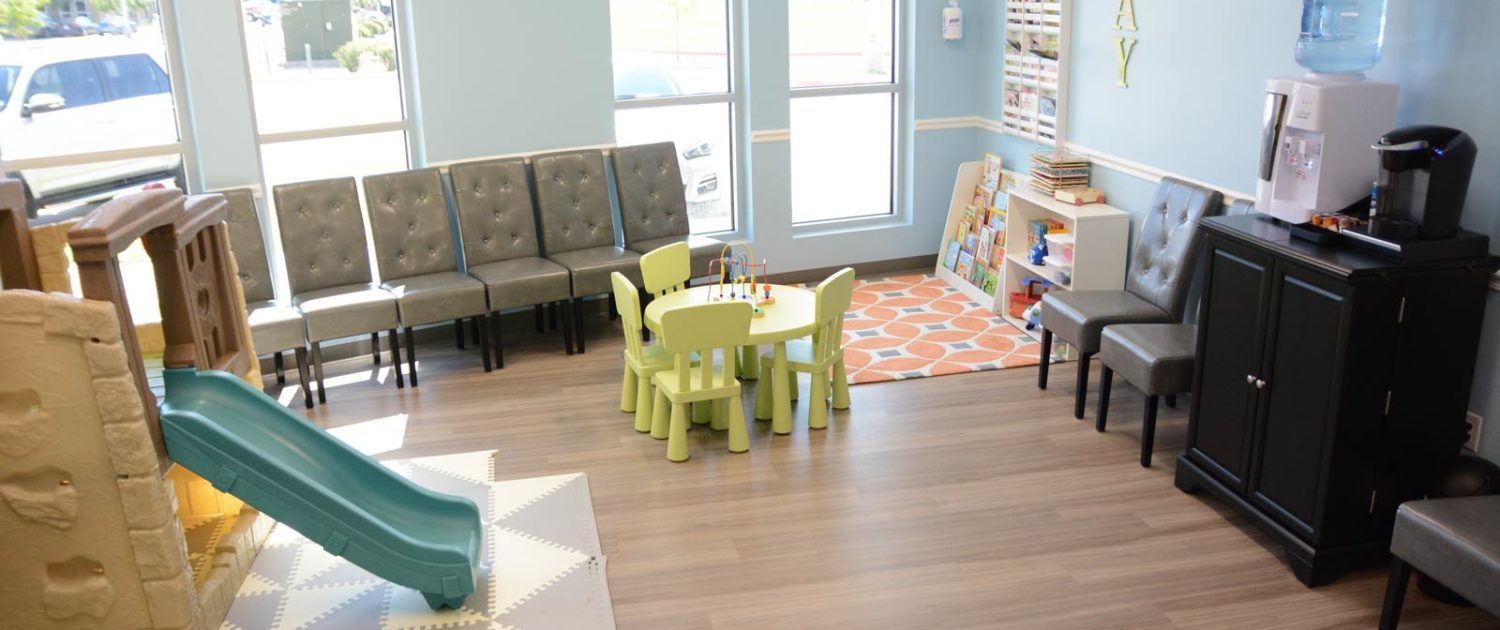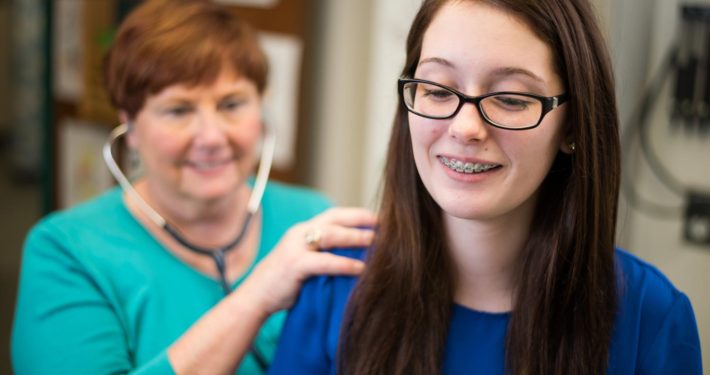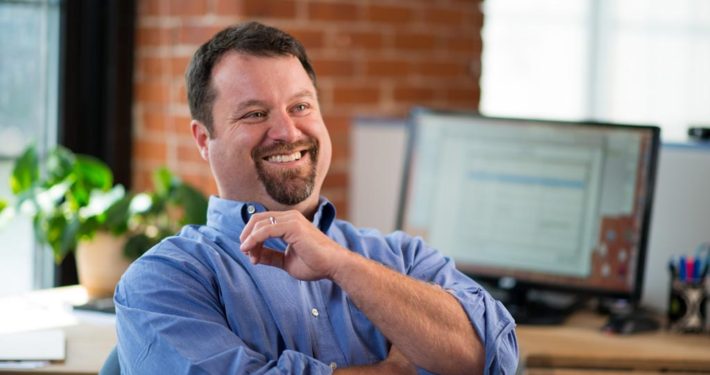Springtime in Texas: A Husband and Wife Team Put Community, Family First
Springtime Pediatrics, a family-run practice in booming Katy, Texas, blends an unwavering commitment to innovation with a focus on compassionate care.
In the growing community of Katy, Texas, Dr. Yasmine Monib, and her husband, Ahmed, are building a practice focused on meaningful connections with patients and an expansive view of what is possible for a family-run business. Patients find in Dr. Monib a compassionate pediatrician who takes the time to answer all of their questions. And in Ahmed Monib, the practice’s office manager, they find someone willing to try out what may seem like unorthodox ideas to make sure they have the best experience possible.
Both Ahmed Monib and Dr. Monib are second generation Americans, with their parents hailing from Egypt. They also both come from families of engineers – all four of their parents work in the field. They met through their fathers, who became friends working for the same company. After years of knowing each other and “never really talking about their kids,” laughs Ahmed Monib, the fathers thought to bring their son and daughter together to meet. The Monibs married while Yasmine was in her last year of medical school. Ahmed Monib had just finished his graduate degree in engineering. Dr. Monib, who grew up in a small town in Oklahoma, followed the family tradition and majored in chemical engineering at the University of Oklahoma, but always had her sights set on medicine. She graduated from the University of Oklahoma School of Medicine in 2001, and completed her residency at the University of Texas Southwestern Medical Center in Dallas three years later.
The idea for Springtime Pediatrics began percolating for the Monibs in 2014, when a demanding work schedule for Ahmed Monib required frequent moves. As a member of the management team for an international engineering and construction firm, he would spend a few years at a time on various projects all over the world. Over the course of about nine years, the Monibs lived in Las Vegas, Maryland, and Dubai – this as Dr. Monib was finishing her residency in Dallas in 2004 and just entering the practice of pediatrics.
It was fast-paced, exciting work for Ahmed Monib, but increasingly exhausting for the family, which soon grew to include three daughters. When he was assigned to a project in Houston, Texas, in 2013, the family heaved a collective sigh of relief. Dr. Monib’s parents lived in the area, and it seemed like a place they could put down roots. “The impetus for starting the practice was really work-life balance,” says Ahmed Monib.
Dr. Yasmine Monib worked for about two years for a pediatric practice as they continued to fine tune their plans. The couple spent the bulk of 2015 conducting research – deciding on a good location in the booming Houston metro area, working with a consultant on the details of starting a business, and hashing out what they hoped their practice would look like.
After one lease deal fell through, setting them back by about eight months, they opened Springtime Pediatrics in January of 2016. Ahmed Monib kept his position at the engineering firm for about a year as the practice built a patient base, and then came on as office manager. The business now employs four people. They just recently brought on a second physician, Dr. Aisha Khan, with plans to add two medical assistants to their ranks in the not too distant future.
With Dr. Monib seeing about 25 patients per day, and a panel size of about 1,400 patients, the pace is certainly busy but not overwhelming. This is important for the Monibs, as they want to get to know their patients in ways that go beyond physical health.
“We don’t want to be just somebody’s doctor in the office. We want to really be part of families’ lives.”Ahmed Monib
Sure, some families are focused on convenience – checking off those vaccinations, or that school year physical – but others seek out Springtime Pediatrics because they’re looking for physicians who are invested in the health of their children.
“We get patients who are here because they love that personal relationship,” says Ahmed Monib. “And our doctors are so sweet. People instantly enjoy having them as their pediatrician.”
For Dr. Monib, the bond she forms with her patients is rooted in making sure kids and their family members feel heard. “I think I’m a decent listener,” she says. “I tend to listen before I talk.”
No matter the nature of the visit – from complex, chronic conditions to the common cold – she says she wants the family to feel like they are part of the health care team, and that they have a key role to play.
Ahmed Monib points out that families leaving the office with this understanding doesn’t necessarily mean more time in the exam room with the doctor. “When Dr. Monib sits quietly and lets them talk until they’re done asking every single question they have, it’s only a matter of another 30 seconds,” he says. “It’s quality time and people appreciate it.”
Putting Business Experience to Work
Springtime Pediatrics works hard to fulfill a common request from families: No wait time when they come to the office for an appointment. In a small practice, making good on this might be a tall order, but not for Springtime. Ahmed Monib says he is proud of their many five-star reviews on Google, many of which mention how quickly their children were seen once they entered the waiting room.
There’s a method to this efficiency. Ahmed Monib has parlayed his experience coordinating multi-billion dollar construction projects into experimenting with and fine tuning how Springtime Pediatrics is managed. Through his previous career, he had the opportunity to run a Lean Six Sigma and Innovation program, the legendary methodology popularized by former General Electric CEO Jack Welch that focuses on data-driven strategies to improve business processes. As a Six Sigma Corporate Master Black Belt, he was responsible for deploying Six Sigma and supporting improvement activities worldwide, as well as mentoring others. Ahmed Monib has found much of what he learned can be applied to the pediatric practice.
“Every day, at the end of the day, we ask ‘what went right, what went wrong, why did this person wait, what we can do better?’” he says. “And we make adjustments.”
He continually modifies the practice’s schedule template to better match patients’ needs and to maximize the time of Dr. Monib and others on staff. This has meant scheduling new patients at certain times of day, and instituting evening hours once a week to allow more people to take advantage of that coveted after school slot for physicals.
Sometimes he’ll take time out of his office to sit in the waiting room and observe: What is happening as patients check in? Where are they gravitating in the waiting room? How do they spend their time? He also learned how to develop surveys during his Six Sigma training, and he’s been able to use this tool to make important improvements to Springtime Pediatrics. After every patient visit, families receive an electronic survey. Those who fill it out are entered into a raffle for a prize. Not only do patients feel like they have a voice, they come up with some good suggestions.
Ideas the Monibs have implemented as a result of patient feedback include the addition of in-office lab work such as hemoglobin and lead testing, and the introduction of a very popular play slide in the waiting room – so popular, in fact, that kids sometimes stay after their appointment to visit it again.
In addition, Springtime Pediatrics created a Facebook group as a result of survey feedback, allowing parents to connect with each other. It’s also a communication channel for the Monibs. They often ask families for their opinions – one recent post brought in ideas for new books to purchase for the waiting room – as well as share the reasoning behind some of the decisions they make for the practice.
For example, when the suggestion came up multiple times through survey feedback to add a television to the waiting room, Ahmed Monib was able to respond in a thoughtful way via the Facebook group. “It gives us an opportunity to explain our viewpoint,” he says. He used the group to acknowledge the request but to also explain that as a pediatric office, “we’re not going to encourage more television watching in this day and age.” Families appreciated the honest answer, and many came around to understand the rationale.
Although some ideas that families have drummed up via the survey haven’t happened yet, the Monibs aren’t entirely ruling them out for some point in the future. The list includes a lactation consultant, nutrition consultant, teen counseling, a mobile vaccination clinic, and a pick up/drop off service for kids. For Ahmed Monib, the possibilities to innovate are part of the fun and the challenge of running a small practice.
“For me, it is like a big sandbox,” he says. “We’re hoping that it’ll be a unique, very patient-oriented, customer-oriented place.”
A resident of Burlington, Vermont, Erin Post has a B.A. degree in English from Hamilton College, and is a graduate of the writing program at the Salt Institute for Documentary Studies. She is currently working on her master’s in public health at the University of Vermont. In her spare time, she likes to bike, ski, hike, and generally enjoy the Green Mountains of Vermont.


